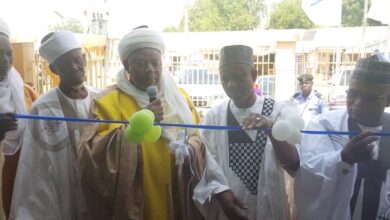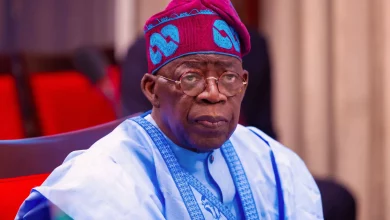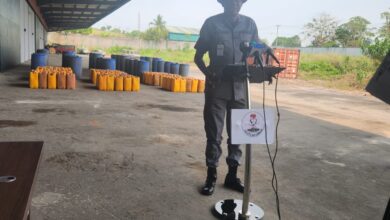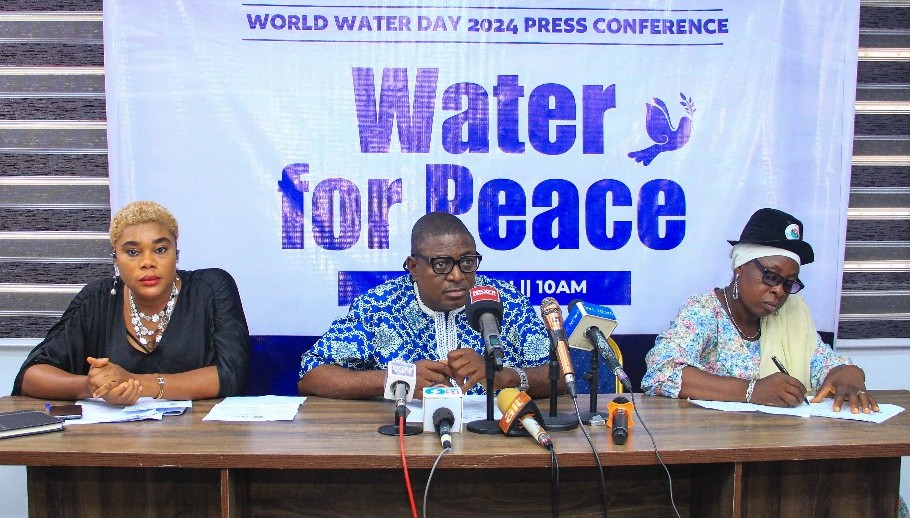
The Corporate Aecountability and Public Participation Africa (CAPPA), a non-governmental organization on Friday said, water privatisation has failed worldwide including Nigeria.
CAPPA called on the federal and state government to abandon any ongoing or future plans to privatise water services.
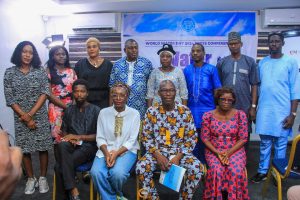 Akinbode Oluwafemi, Executive Director CAPPA, disclosed this in a press conference in Lagos. He noted that over 400 million people across Africa, including our own country, still lack access to safe drinking water.
Akinbode Oluwafemi, Executive Director CAPPA, disclosed this in a press conference in Lagos. He noted that over 400 million people across Africa, including our own country, still lack access to safe drinking water.
This year’s theme: ‘Water for Peace,’ underscores the critical necessity of water for human survival and societal stability.
In Nigeria alone, a staggering 113 million people sufter from painful hardship and crippling deprivation of water.
This saddening neglect Is not due to a scarcity of resources but rather a consequence of the profit-driven logic adopted by state authorities in managing water supply and amenities.
The relentless pursuit of commodifying public resources, at the expense of community welfare, has led to the deterioration of vital public utilities and social services.
“This issue is further worsened by the state’s frequent romanticisation of profit-driven partnership modela as purported solutions, despite global evidence documenting the failures of privatizing water supply and infrastructure.
“We wish to re-emphasize that only demoeratie ownership and public control of water services can remedy the deep-rooted injustice of water inaccessibility. We categorically reject any plans by the Lagos State aided by the influence of international financial institutions and development agencies with a pro-privatization stance to outsource its traditional responsibility of providing water to its citizens to business owners.
“Also, we urged that a participatory approach to water governance that prioritizes the voices and needs of local communities into decision-making processes related to water management must be adopted by the government”, he said.
Right now, “France is back to remunicipalisation.”
“Remunicipalisation is the return of previously privatised water supply and sanitation services to municipal public/government authorities, Oluwafemi added
On her part, Aderonke Ige, Associate Director at CAPPA, stated that 13 years after the United Nations declared water a human right, Africans, including Lagosians, are still battling affordability and availability.
“We want public ownership of water. And we must be heard,” she said.
Furthermore, “Privatisation failed across the world. It failed in Cameroon and Gabon. Ghana has deprivatised, while Niger has refused to renew the scheme,” .
Also speaking, Abiodun Bakare of the Nigeria Labur Congress, NLC, said it does not look like the governments in Nigeria have dropped the idea of privatising water resources.
“Although it is not yet uhuru,” he said, “but CAPPA, the Our Water Our Right Coalition and other CSOs have been fighting.
“And we need to do more. They (governments) have more resources to pursue their agenda. But we will not give up,” the unionist added.
‘Our Water Our Right Africa Coalition’ (OWORAC), has also urged governments at all levels to commit to fulfilling the human right to safe drinking water.
OWORAC, noted that it will continue to insist that all forms of water privatisation and corporate control of water services be rejected as they pose fundamental threats to the shared goal of universal access to water.






